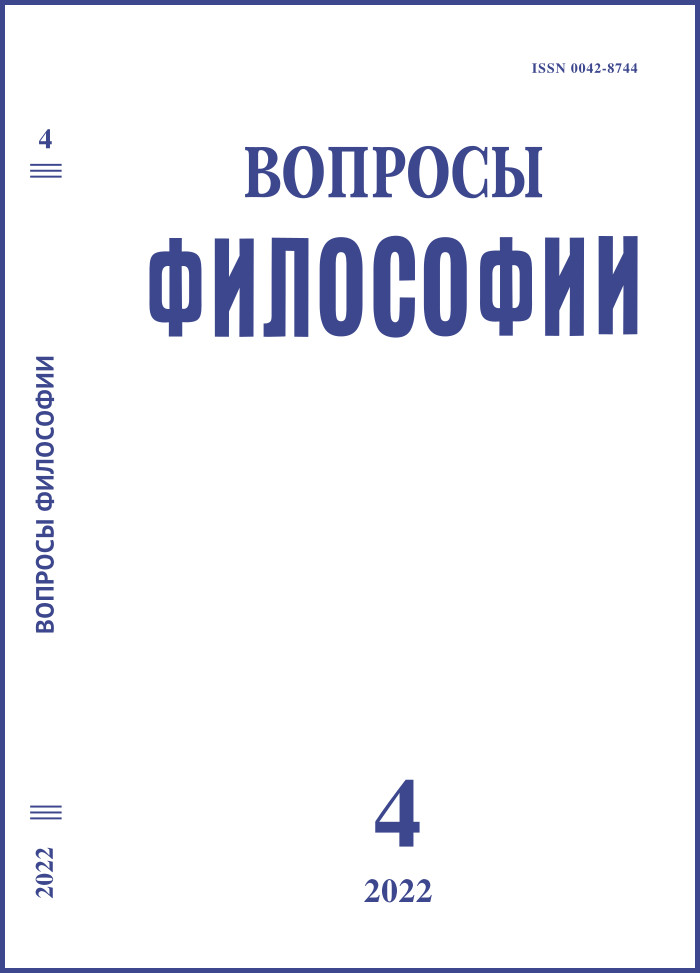Объективное время и перспективы современной метафизики
DOI:
https://doi.org/10.21146/0042-8744-2022-4-83-92Ключевые слова:
объективное время, метафизика, индивидуальные субстанции, объективная реальность, реализм, трансцендентализм, натурализм, физикализмАннотация
Одна из особенностей современной философии – возрождение интереса к классическим метафизическим проблемам (природы ментального, свободы воли, времени) и их активное обсуждение. Вместе с тем положение дел в современной метафизике довольно неоднозначно. Пока одни исследователи пытаются решать собственно метафизические проблемы в рамках определенной традиции, другие ищут альтернативные пути, третьи отрицают саму возможность метафизики в качестве позитивного знания или считают необходимым сосредоточиться на обсуждении вопроса о ее методах и действительных возможностях. Строго говоря, с учетом тех трудностей, с которыми за последние столетия столкнулся тезис о возможности получить знания об объективной реальности, в данном положении дел нет ничего принципиально нового. По-прежнему актуальными остаются два основных вопроса, без ответа на которые невозможно говорить о том, что решение любой метафизической проблемы является когерентным. Возможна ли вообще метафизика в качестве позитивного знания о реальности? Если возможна, то каким образом? Автор считает, что аргументы со стороны трансцендентализма против натурализма достаточно эффективны и следует отказаться от поисков решения метафизических проблем, совместимых с натурализмом. Но это не означает, что на метафизические вопросы вообще невозможно дать когерентные в теоретико-методологическом отношении ответы. По мнению автора, перспективы метафизики могут быть связаны с поиском иных точек отсчета, чем те, которые обычно используются в современных дискуссиях. В качестве таковой может быть взято представление об объективности времени, которое имеет важнейшее значение в современной метафизике.
Загрузки
Опубликован
Версии
- 2025-02-06 (2)
- 2022-04-30 (1)

